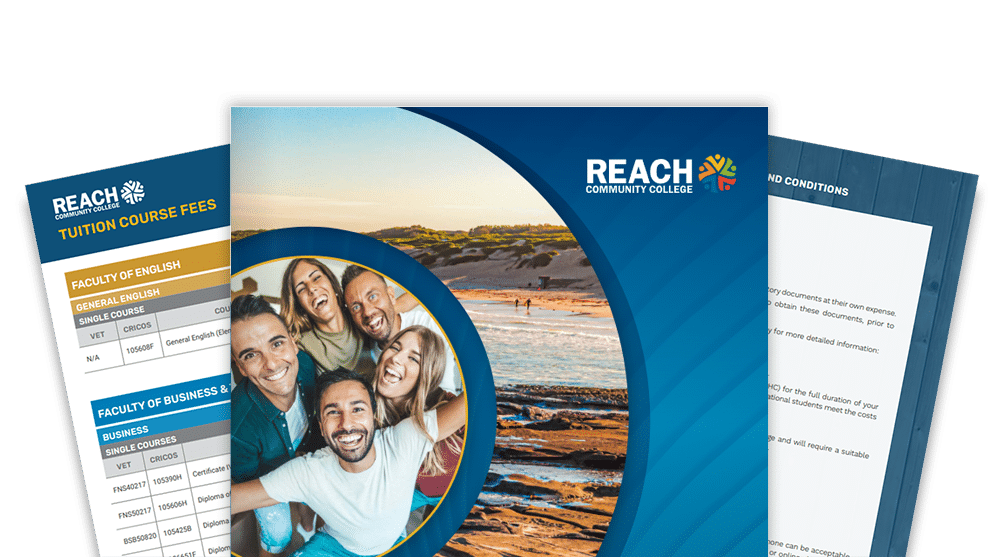- Courses & Promotions
Current Offers & Promotions
Explore our current promotions
- How to Apply
- Student SupportPopular Links
Make a payment and view refund policy
View all the latest forms and policies
All the details about our next orientation
Submit forms digitally and securly online
Sign in to your student Moodle portal
Your guide to starting with Reach
- About Us
- Agents
- Contact
Our website is currently being updated

